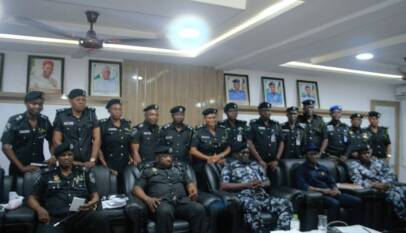Essential roles of community development association leaders in combating cultism, social vices

By Prince Gbemisola Obadeyi
In recent years, the prevalence of cultism and social vices has emerged as a critical challenge faced by many communities around the world.
Cultism, which often involves secretive groups engaged in illicit activities, can lead to violence, drug abuse, and a breakdown of societal values.
Community Development Association (CDA) leaders play a pivotal role in addressing these issues, fostering safe environments, and promoting sustainable development.
This article explores the responsibilities and roles of CDA leaders in combating cultism and other social vices.
Awareness and education:
One of the primary responsibilities of CDA leaders is to raise awareness about the dangers of cultism and social vices within their communities. They can organize workshops, seminars, and community meetings to educate residents, particularly the youth, about the harmful effects of joining such groups.
By providing information about the psychological, social, and legal repercussions of cult involvement, CDA leaders can help individuals make informed choices and steer clear of dangerous affiliations.
Creating safe space and support systems:
CDA leaders have a responsibility to create safe and welcoming environments for community members. This includes establishing recreational centers, youth clubs, and mentorship programs that engage young people in positive activities.
By providing constructive outlets for energy and creativity, CDA leaders can help reduce the allure of cultism and other negative influences. Additionally, by fostering a sense of belonging and community pride, they can encourage individuals to invest in their own neighborhoods rather than seeking acceptance in harmful groups.
Collaboration with law enforcement and local authorities:
Effective prevention of cultism often requires collaborative efforts between community leaders and law enforcement agencies.
CDA leaders should work closely with local police, security agencies, and other relevant authorities to develop strategies for reducing crime and enhancing community safety.
This collaboration can include organizing joint community policing initiatives, advocating for better security measures, and ensuring that there are clear channels for reporting suspicious activities within the community.
Promoting dialogue and conflict resolution:
Cultism often arises from underlying social discord and conflict. CDA leaders have a responsibility to promote dialogue among community members and facilitate conflict resolution efforts. Through open discussions,
Creative supportive environments:
CDA leaders are tasked with creating an environment that discourages involvement in cultism. This involves fostering a sense of community solidarity and belonging. By establishing programs that enhance community engagement—such as sports, arts, and mentorship initiatives—leaders can provide alternatives to the allure of cult groups.
Encouraging positive relationships among residents fosters a culture where individuals feel valued and less inclined to seek validation from cult membership.
Collaboration with NGOs
To effectively combat cultism and other social vices, CDA leaders should establish partnerships with non-governmental organizations (NGOs) focused on youth development and crime prevention.
Collaborative efforts can lead to integrated strategies that address the root causes of cultism, provide resources for at-risk youth, and ensure that communities remain safe. Joint initiatives, such as community policing programs or outreach campaigns, can enhance security and build trust between residents and law enforcement.
Promoting alternative livelihood opportunities: Economic hardship is a significant factor that leads individuals, especially youth, to seek belonging in cult groups.
CDA leaders can work with local governments and NGOs to create vocational training programs and job placement initiatives that provide viable alternatives to potential recruits. By addressing the economic root causes.
Obadeyi; POCACOV South West Secretary
Stakeholders hail FG, Oyetola, Dantsoho as E’TO revolution eases Apapa gridlock
Stakeholders in the maritime and transport sectors have commended the Federal Government, …







